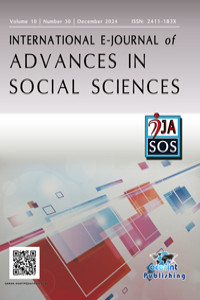Abstract
References
- AALRDISA (2003). Imidlalo kaZakes Mda (isiNdebele translation). Unisa Press: Pretoria.
- Baker, M. (2018). In Other Words: A Coursebook on Translation. Routledge: London.
- Dlamini, P. (2021). Avoiding Potholes in Translation: A Practical Perspective on Translation between English and isiZulu. University of KwaZulu-Natal Press: Pietermaritzburg.
- Fallahshabrak, N. & Salmani, B. (2013). On Novels Translated into Persian: A Post-colonial Approach. Theory and Practice in Language Studies, Vol. 3, No. 6. June 2013. 1050-1058.
- Geng, X. (2013) Techniques of the Translation of Culture. Theory and Practice in Language Studies, Vol. 3, No. 6. June 2013. 977-981.
- Hatim, B & Munday, J. (2004). Translation: An advanced resource book. Routledge: London.
- Maree, K. (ed). (2018). First Steps in Research: Second edition. Van Schaik: Pretoria
- Mda, Z. (1990). The Plays of Zakes Mda. Ravan Press: Johannesburg.
- Munday, J. (2016). Introducing Translation studies: Theories and applications. Fourth Edition. Routledge: New York.
- Putranti, A. (2018). Modulation: A Translation Method to Obtain Naturalness in Target Language Texts. Journal of Language and Literature, Vol. 13(1). April 2018. 98-101.
- Safei, NH & Salija K. (2018). The Naturalness and Accuracy of English Short Story Translation into Indonesian. ELT Worldwide Volume 5 (1). 2018. 44-53.
- Saputra, KJH & Rini, JE. (2021). Assessment of Accuracy and Naturalness in the Subtitle Translation of Supernatural TV Series. Kata Kita, Vol 9 (2). Sept 2021. 144-149.
- Zainurrahman, K. (2010). Five Translation Competencies. https://zainurrahman.wordepress.com/2010/06/06/five-translation-competencies/
TRANSLATION OF SELECTED ZAKES MDA’S PLAYS INTO THE ISINDEBELE LANGUAGE: PERSPECTIVES ON ACCURACY AND NATURALNESS
Abstract
Although the isiNdebele language has been listed as one of the official languages in the Republic of South Africa, it is still amongst the youngest of the twelve official languages. IsiNdebele language lags notably in aspects such as terminology, literature, translation projects, and general language use. The translation of selected Zakes Mda’s plays into the isiNdebele language, is a milestone in the history of this language, as it removes some barriers that prevent interaction and expression of ideas between the English and isiNdebele-speaking communities. In the process of translation, which involves de-coding, re-coding, and en-coding the texts, translators often find themselves having to tread carefully between accuracy and naturalness, especially between the Western and African cultures. A domestication (localisation) approach has been adopted in the translation of the five plays, viz. Dead End, We Shall Sing for the Fatherland, Dark Voices Ring, The Hill, and The Road, which are authored by Zakes Mda, and were later translated into the isiNdebele language. The paper aims at understanding translation choices that the translator had to contend with, regarding accuracy and naturalness between the two languages, viz. English and the isiNdebele languages. Lessons gleaned from this study also assist in developing strategies for future similar or related projects.
Supporting Institution
Central University of Technology, Free State
References
- AALRDISA (2003). Imidlalo kaZakes Mda (isiNdebele translation). Unisa Press: Pretoria.
- Baker, M. (2018). In Other Words: A Coursebook on Translation. Routledge: London.
- Dlamini, P. (2021). Avoiding Potholes in Translation: A Practical Perspective on Translation between English and isiZulu. University of KwaZulu-Natal Press: Pietermaritzburg.
- Fallahshabrak, N. & Salmani, B. (2013). On Novels Translated into Persian: A Post-colonial Approach. Theory and Practice in Language Studies, Vol. 3, No. 6. June 2013. 1050-1058.
- Geng, X. (2013) Techniques of the Translation of Culture. Theory and Practice in Language Studies, Vol. 3, No. 6. June 2013. 977-981.
- Hatim, B & Munday, J. (2004). Translation: An advanced resource book. Routledge: London.
- Maree, K. (ed). (2018). First Steps in Research: Second edition. Van Schaik: Pretoria
- Mda, Z. (1990). The Plays of Zakes Mda. Ravan Press: Johannesburg.
- Munday, J. (2016). Introducing Translation studies: Theories and applications. Fourth Edition. Routledge: New York.
- Putranti, A. (2018). Modulation: A Translation Method to Obtain Naturalness in Target Language Texts. Journal of Language and Literature, Vol. 13(1). April 2018. 98-101.
- Safei, NH & Salija K. (2018). The Naturalness and Accuracy of English Short Story Translation into Indonesian. ELT Worldwide Volume 5 (1). 2018. 44-53.
- Saputra, KJH & Rini, JE. (2021). Assessment of Accuracy and Naturalness in the Subtitle Translation of Supernatural TV Series. Kata Kita, Vol 9 (2). Sept 2021. 144-149.
- Zainurrahman, K. (2010). Five Translation Competencies. https://zainurrahman.wordepress.com/2010/06/06/five-translation-competencies/
Details
| Primary Language | English |
|---|---|
| Subjects | Translation and Interpretation Studies |
| Journal Section | Research Article |
| Authors | |
| Early Pub Date | December 29, 2024 |
| Publication Date | January 7, 2025 |
| Submission Date | November 8, 2024 |
| Acceptance Date | December 17, 2024 |
| Published in Issue | Year 2024 Volume: 10 Issue: 30 |
Contact: ijasosjournal@hotmail.com
The IJASOS Journal's site and its metadata are licensed under CC BY
Published and Sponsored by OCERINT International © 2015- 2025

